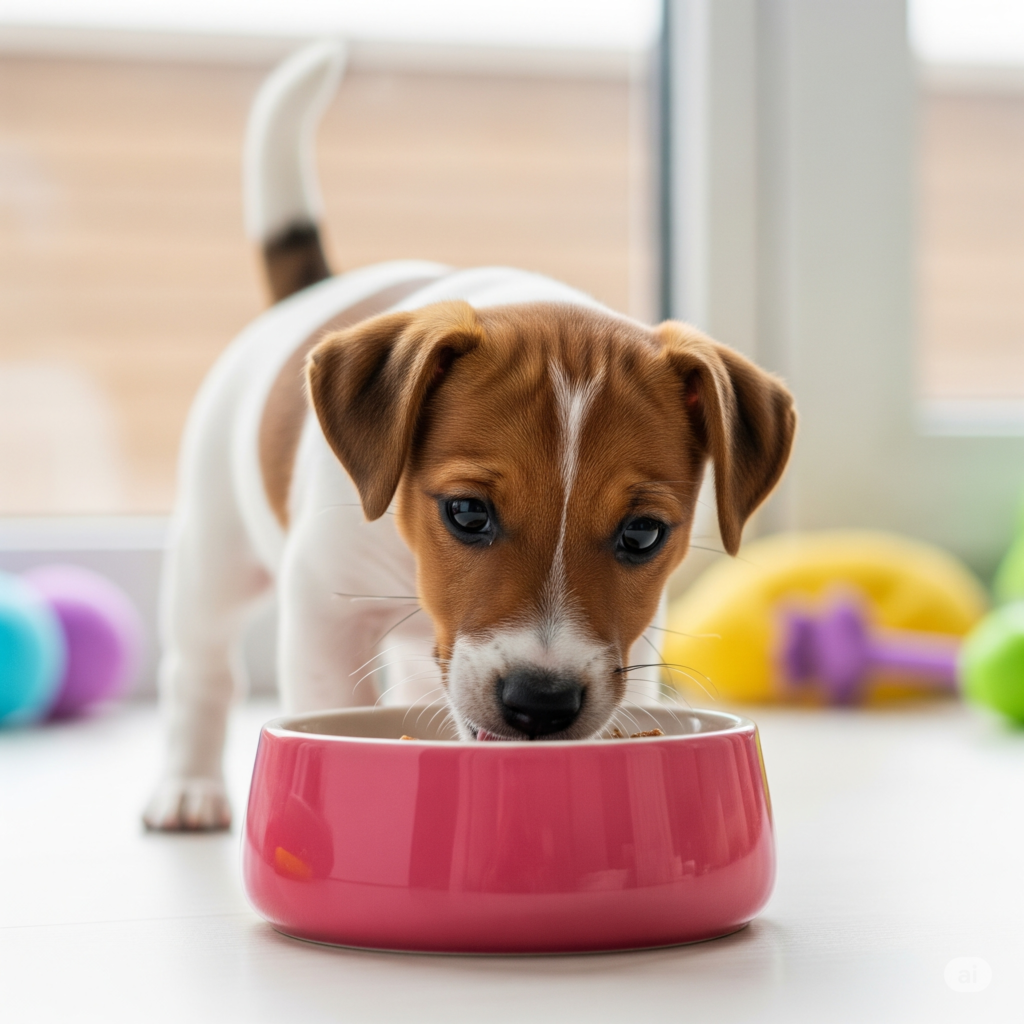
Feeding a puppy might seem simple, but many new pet parents quickly discover that it can come with unexpected challenges. From picky eaters to digestive troubles, proper nutrition is crucial during the early stages of your pup’s life. Let’s explore some of the most common puppy feeding problems and solutions to keep your furry friend healthy and happy.
1. My Puppy Won’t Eat — What Should I Do?
It’s not unusual for puppies to skip a meal occasionally, especially when adjusting to a new home. Stress, change in environment, or unfamiliar food can all cause a temporary loss of appetite.
Solution:
- Ensure mealtimes are quiet and distraction-free.
- Stick to a consistent feeding schedule.
- Offer food for 15–20 minutes, then remove it if uneaten.
- Avoid offering too many treats that spoil their appetite.
- If your puppy hasn’t eaten for more than 24 hours, consult your vet to rule out illness.
2. Picky Eating Habits
Some puppies seem uninterested in anything you put in their bowl. They may sniff and walk away or eat only certain pieces.
Solution:
- Use a high-quality, vet-approved puppy food.
- Avoid constantly switching brands, as this can cause digestive upset and reinforce picky behavior.
- Mix a spoonful of plain chicken broth or warm water into dry kibble to enhance aroma and taste.
- Keep a consistent feeding routine and avoid feeding table scraps.
3. Eating Too Fast
Many puppies inhale their food, which can lead to choking, gagging, or even vomiting.
Solution:
- Use a slow-feeder bowl or puzzle feeder to pace their eating.
- Spread food on a flat surface or baking tray to slow them down.
- Feed smaller portions more frequently throughout the day.
4. Puppy Has Loose Stool After Eating
If your puppy has diarrhea or loose stools, it could be due to a sudden diet change, overfeeding, or food intolerance.
Solution:
- Introduce new foods gradually over 7–10 days.
- Stick to age-appropriate puppy formulas.
- Ensure proper portion sizes based on weight and age.
- Visit your vet if diarrhea persists or is accompanied by lethargy or vomiting.
5. Food Guarding or Aggression at Mealtime
Some puppies may growl or protect their food bowl, especially if they came from a competitive litter environment.
Solution:
- Hand-feed your puppy to build trust and reduce guarding behavior.
- Drop treats into the bowl while they eat to associate people with good things.
- Avoid taking food away mid-meal, as it may increase guarding instincts.
6. Constant Begging for Food
Begging may seem cute but can develop into a bad habit and lead to overfeeding.
Solution:
- Feed your puppy at set times and avoid giving food from your plate.
- Ignore begging behavior instead of rewarding it.
- Offer healthy chew toys or treats during your mealtimes to distract them.
7. Overfeeding and Weight Gain
Puppies are growing fast, but too much food can lead to obesity and health issues.
Solution:
- Follow portion guidelines on the puppy food label or as advised by your vet.
- Monitor weight and adjust portions based on activity level.
- Limit treats to 10% or less of daily calorie intake.
Final Thoughts
Feeding your puppy doesn’t have to be stressful. By understanding these common puppy feeding problems and solutions, you’ll be better equipped to provide your puppy with the balanced, nutritious diet they need to thrive. Always consult your veterinarian if problems persist or if you’re unsure about your puppy’s nutritional needs. With patience and consistency, mealtimes can become a positive and healthy experience for both of you.
